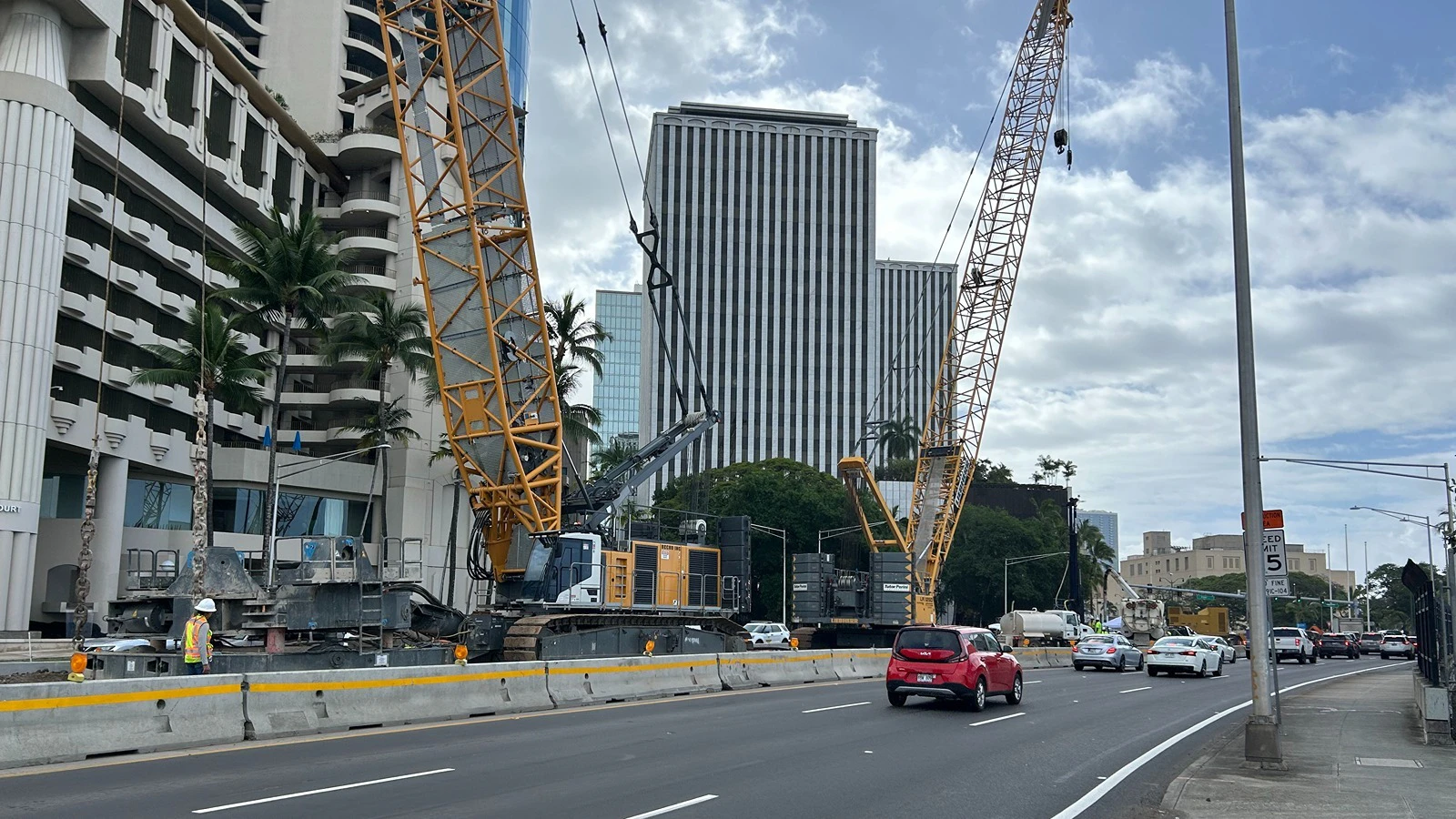Firearm bans are out and firework bans are in as Hawai‘i's 2025 legislative session draws to a close.
Gun control measure "eviscerated"
On Wednesday, the last full day of the session, lawmakers struck down Senate Bill 401, which would have established sweeping prohibitions on various “assault rifles,” “assault shotguns” and other firearms.
The bill’s final form, adopted in a floor amendment on Wednesday, would have prohibited the sale or possession of assault rifles — defined as semiautomatic rifles with certain features like a magazine capable of accepting more than 10 rounds — in the state after 2026.
Such guns already registered within the state would not be outlawed, but could only be carried on the owner’s private property or the property of someone who granted explicit permission, on the premises of a licensed gun dealer or gunsmith, a licensed firing range or similar venue, or traveling between those locations.
The final version of the bill also carved out an exception for “lawful subsistence hunting by residents of the State engaged in traditional and customary practices,” allowing those hunters to use assault rifles freely while hunting. That exception also applied to invasive species control measures, allowing private landowners to shoot pest species using the otherwise banned guns.
It was this exception that led to lawmakers rejecting the bill. Sen. Karl Rhoads (D-Punchbowl, Pālama, Chinatown) said the exception “eviscerates” the original intent of the bill by opening up a huge loophole that allows these firearms to proliferate within the state.

East Maui Sen. Lynn DeCoite (D), who introduced the amendment including the exception, said it would have protected the rights of Native Hawaiian subsistence farmers, and warned that removing powerful weapons from the state’s arsenal against invasive species is a mistake.
“It is not just an ecological issue, it is a budgetary crisis, and we are paying for it with taxpayer dollars,” DeCoite told the Senate on Wednesday. “And every time we remove a tool from the people on the front lines — our hunters, ranchers, landowners and conservation crews — we increase the cost.”
But lawmakers simply ran out of time to come to an agreement about these eleventh-hour concerns. The legislature adjourns on May 2, and although the Senate recommitted the bill to conference committee — where senators and representatives debate to come to an agreement about bill amendments — there is no way that committee can reconvene this session, killing it by default.
“This is a tough loss,” said Big Island Rep. David Tarnas (D), architect of the bill, to Aloha State Daily.
Tarnas said DeCoite’s amendment was redundant in places — older versions of the bill still allowed grandfathered guns to be used on private property, allowing farmers and ranchers to hunt on their land — and self-defeating in others. In particular, the amendment would have allowed assault rifles registered in the state to be resold within the state, which he said missed the entire point of the original proposal.
While Tarnas said he thought he had written a good bill, he said he’ll “wait for the dust to settle” before deciding whether to pursue a similar measure in 2026.
“We had the votes in the House,” Tarnas said. “But clearly we don’t have them in the Senate and I don’t want to put my colleagues through this again if it isn’t going to pass.”
Near-total support for near-total ban
While the Senate was divided on the gun ban, neither the Senate nor the House were conflicted about a measure that would essentially ban nearly all private, unlicensed use of fireworks.
Dozens of lawmakers introduced House Bill 1483 this year in response to the Aliamanu New Year’s Eve explosion that killed six people, including a 3-year-old boy, five months ago.
Under the bill, a person who sets off a firework within 1,000 feet of a hospital, nursing home, animal shelter or veterinary clinic will be charged with a second-degree fireworks violation.
The same charge will apply to someone who illegally discharges a firework in a school building, on school property, on public roads, on public beaches, in a park, in an officially designated forest or wildlife preserve, within 50 feet of a cane field, within 1,000 feet of any site of worship during worship services, or within 500 feet of any dwelling.
The bill states that the charge will be applied irrespective of whether the user knew they were near any of the prohibited areas.
The charge is only a misdemeanor on first offense, but is elevated to a Class C felony — carrying a maximum possible prison sentence of five years — if the offender has any prior fireworks-related charges within the previous 10 years. If the firework causes injury, it is elevated again to a Class B felony, with a maximum possible sentence of 10 years’ imprisonment.
If the firework causes death, the charge becomes a Class A felony, with a maximum possible prison term of 20 years.
Sending or receiving fireworks via air delivery without a current federal explosives license is also prohibited by the bill, as is distributing them to non-permit holders or extracting a firework’s explosive contents.
Both the House and Senate approved of the bill with little discussion Wednesday, although both chambers introduced minor clarifying amendments. The bill is now headed toward a final reading by the full legislature on Friday.





